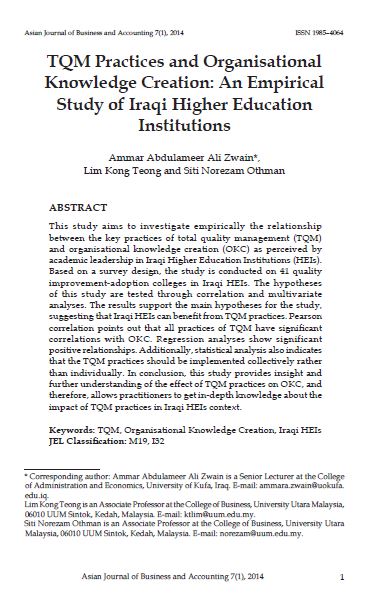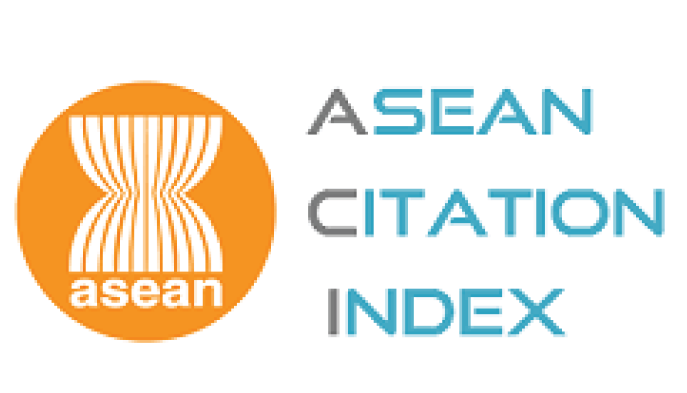TQM Practices and Organisational Knowledge Creation: An Empirical Study of Iraqi Higher Education Institutions
Abstract
This study aims to investigate empirically the relationship between the key practices of total quality management (TQM) and organisational knowledge creation (OKC) as perceived by academic leadership in Iraqi Higher Education Institutions (HEIs). Based on a survey design, the study is conducted on 41 quality improvement-adoption colleges in Iraqi HEIs. The hypotheses of this study are tested through correlation and multivariate analyses. The results support the main hypotheses for the study, suggesting that Iraqi HEIs can benefit from TQM practices. Pearson correlation points out that all practices of TQM have significant correlations with OKC. Regression analyses show significant positive relationships. Additionally, statistical analysis also indicates that the TQM practices should be implemented collectively rather than individually. In conclusion, this study provides insight and further understanding of the effect of TQM practices on OKC, and therefore, allows practitioners to get in-depth knowledge about the impact of TQM practices in Iraqi HEIs context.
Keywords: TQM, Organisational Knowledge Creation, Iraqi HEIs
JEL Classification: M19, I32
Downloads








